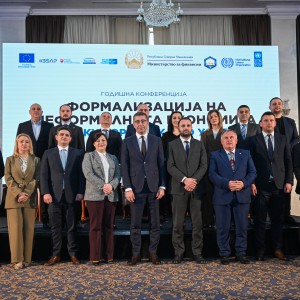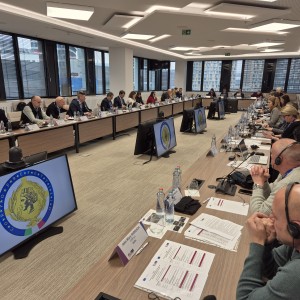News
13 June 2025 |News
Albania Charts a Roadmap to Formalize Tourism Enterprises with ILO Support
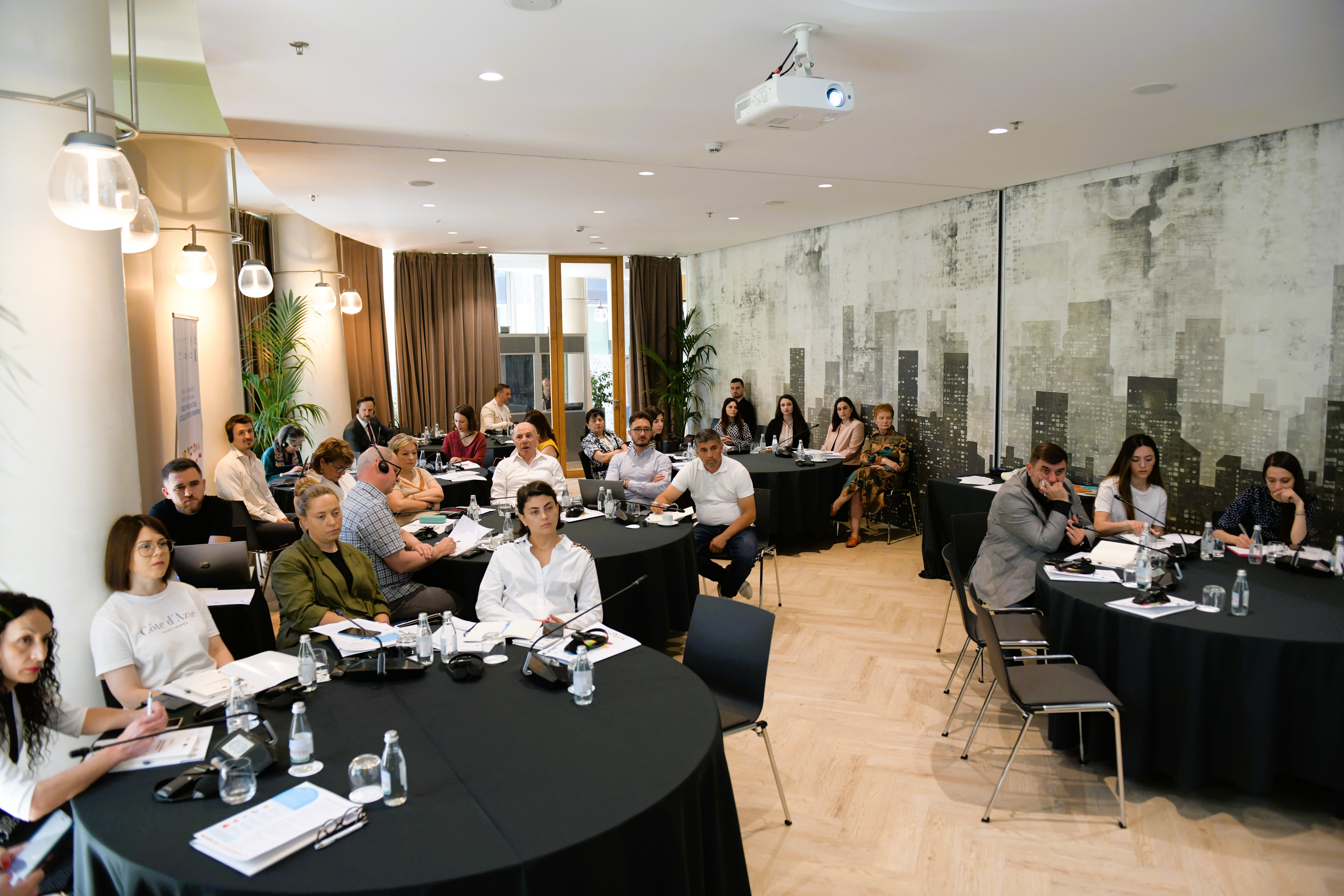
©ILO Co-creating Solutions for Enterprise Formalization in the Tourism Sector, 2-3 June 2025
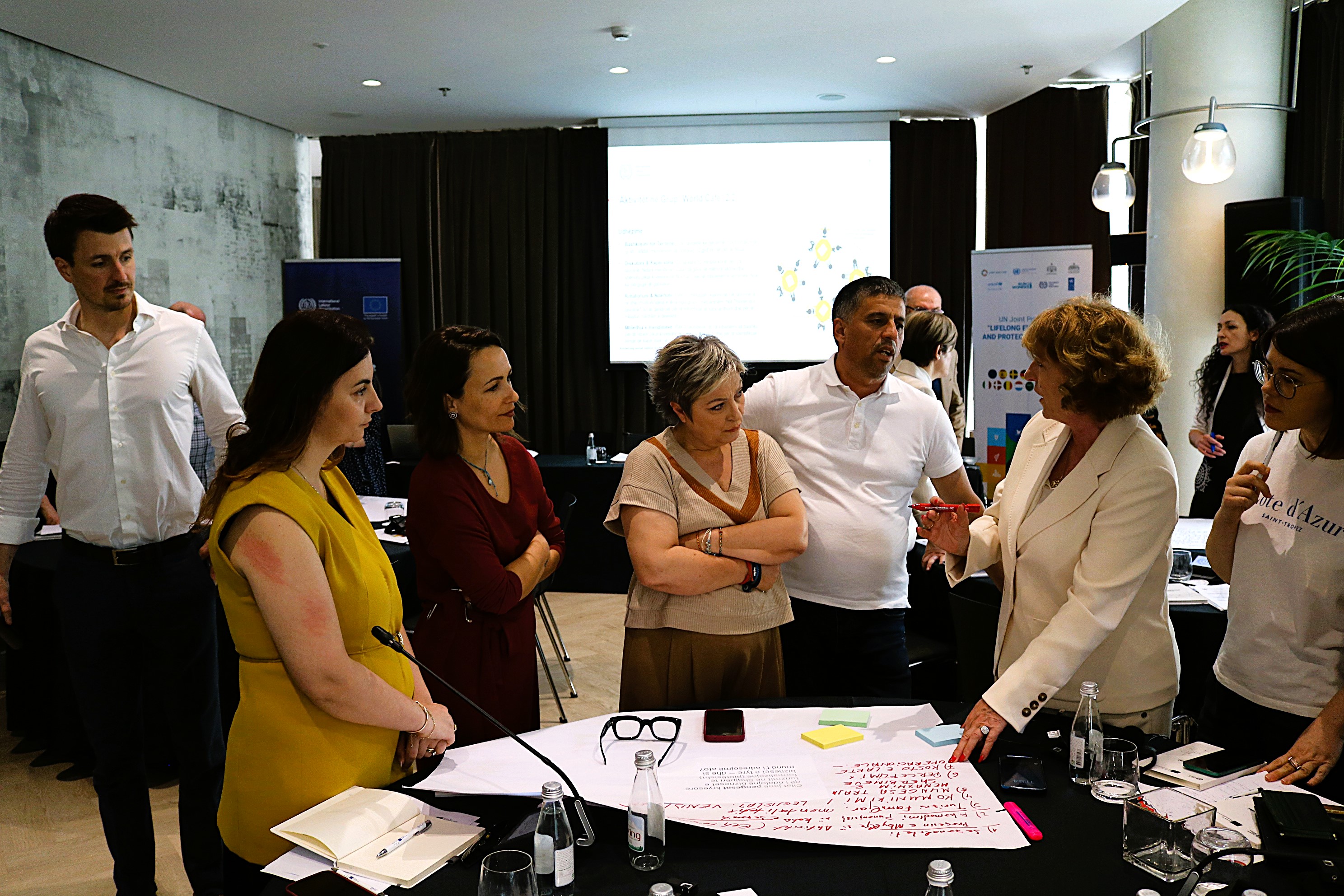
©ILO Co-creating Solutions for Enterprise Formalization in the Tourism Sector, 2-3 June 2025
Tirana, Albania – 3 June 2025
National stakeholders from across Albania’s tourism ecosystem gathered in Tirana on 2–3 June 2025 to co-design a roadmap for promoting enterprise formalization in the country’s rapidly growing tourism sector. The “Co-Creating Solutions for Enterprise Formalization in the Tourism Sector” workshop was jointly organized by the International Labour Organization (ILO) under the EU-funded Employment and Social Affairs Platform (ESAP 3) and the UN Joint Programme “Lifelong Empowerment and Protection in Albania” (LEAP), implemented by the ILO with funding from the UN Joint SDG Fund.
The event brought together 34 representatives of national institutions (23 women), employers’ and workers’ organizations, tourism associations, academia, and development partners to identify effective, context-specific measures that will help transition tourism enterprises from informality to formality, while boosting decent work, competitiveness, and sustainable growth.
Tourism remains one of the strongest drivers of Albania’s economy, generating a record EUR 4.1 billion in 2024—a 46 percent increase from the previous year—and accounting for more than 20 percent of GDP. However, high levels of informality, particularly in accommodation and short-term rentals, continue to undermine fair competition, tax revenues, and labour protection.
The workshop therefore aimed to translate research and dialogue into actionable steps that can help Albania simplify regulations, incentivize compliance, and strengthen coordination across government and industry.
Opening remarks Commitment to Formalization and Growth
In his opening address, Mr. Eduart Shalsi, Head of the Parliamentary Commission of Economy and Finance, noted that the Government of Albania places strategic importance on both tourism and formalization, emphasizing that formalization is not only a matter of compliance, but also a foundation for sustainable growth and credibility in our tourism offer. Echoing this message, Mr. Sofjan Jaupaj, Deputy Minister of Tourism and Environment, underlined recent achievements in modernizing Albania’s tourism sector, including the adoption of the Tourism Strategy 2024–2030 and ongoing reforms to improve the business climate. Mr. Zak Topuzi, Head of the Association of Tour Operators of Albania, highlighted the private sector’s perspective, stressing that while tourism entrepreneurs are ready to grow, they need stability, fair rules, better access to support, and clear pathways to formalization to help them build a competitive and high-quality tourism industry.
Mrs. Ada Huibregtse, Chief Technical Advisor of the ESAP 3 project, underscored the ILO’s long-term commitment to helping Albania and the Western Balkans formalize informal work and enterprises. She noted that formalization and innovation go hand in hand. When enterprises operate formally, they gain access to finance, training, technology, and partnerships that boost productivity and resilience. The ILO and the ESAP 3 bring a wealth of experience in the area, including the work completed with the Albanian State Inspectorate of Labour and Social Services during the second phase of the ESAP project which resulted in a groundbreaking AI powered Matrix of Intelligence and Risk Assessment (MIRA). MIRA has the capacity to more accurately identify businesses that engage in undeclared and underdeclared work, as well as other labour law and OSH violations.
This workshop builds upon the ILO’s comparative study of 24 European good practices, which identified practical tools—such as simplified tax regimes, digital one-stop-shop systems, and incentive schemes—that can inspire reforms tailored to the Albanian context.
Through participatory exercises and group work, participants co-created a four-part national roadmap that will guide Albania’s next steps toward formalizing its tourism enterprises.
The roadmap’s priorities include:
- Digitalization of the formalization process – Developing a unified digital tourism registration platform and streamlining administrative procedures.
- Awareness and communication campaigns – Raising public understanding of the benefits of formalization for both businesses and consumers.
- Financial and non-financial incentives – Providing targeted support, such as certification, branding, and access to finance for formal tourism enterprises.
- Simplification of legal and regulatory frameworks – Adapting legislation to the realities of micro and small tourism businesses and enhancing coordination among institutions.
Participants agreed that sustained inter-ministerial coordination, local government involvement, and data-driven policymaking will be essential to translate the roadmap into concrete results.
Closing the event, Mrs. Fiorela Shalsi, Project Coordinator of the LEAP Programme, noted that the initiative exemplifies the spirit of UN cooperation in Albania. Through the LEAP joint programme, the United Nations family, under the Global Accelerator on Jobs and Social Protection, works together with national partners to create inclusive pathways to decent work and enterprise formalization. This workshop shows what such collaboration can achieve.
The Employment and Social Affairs Platform (ESAP 3), funded by the European Union and implemented by the International Labour Organization, supports Western Balkan economies in advancing labour market governance, formalization, and social dialogue.
The LEAP Program, a UN Joint SDG Fund initiative, is implemented by the ILO, UNDP, and UN Women to strengthen Albania’s social protection and employment systems, focusing on young people, women, and vulnerable groups.
The workshop in Tirana follows similar ILO-supported consultations in Montenegro and North Macedonia, reflecting a regional commitment to building fair, productive, and sustainable tourism sectors.


